第27章 PERIL FROM ABROAD(1)
Apart from the spoliation of Mexico by the United States, the independence of the Hispanic nations had not been menaced for more than thirty years. Now comes a period in which the plight of their big northern neighbor, rent in twain by civil war and powerless to enforce the spirit of the Monroe Doctrine, caused two of the countries to become subject a while to European control. One of these was the Dominican Republic.
In 1844 the Spanish-speaking population of the eastern part of the island of Santo Domingo, writhing under the despotic yoke of Haiti, had seized a favorable occasion to regain their freedom.
But the magic word "independence" could not give stability to the new state any more than it had done in the case of its western foes. The Haitians had lapsed long since into a condition resembling that of their African forefathers. They reveled in the barbarities of Voodoo, a sort of snake worship, and they groveled before "presidents" and "emperors" who rose and fell on the tide of decaying civilization. The Dominicans unhappily were not much more progressive. Revolutions alternated with invasions and counterinvasions and effectually prevented enduring progress.
On several occasions the Dominicans had sought reannexation to Spain or had craved the protection of France as a defense against continual menace from their negro enemies and as a relief from domestic turmoil. But every move in this direction failed because of a natural reluctance on the part of Spain and France, which was heightened by a refusal of the United States to permit what it regarded as a violation of the Monroe Doctrine. In 1861, however, the outbreak of civil war in the United States appeared to present a favorable opportunity to obtain protection from abroad. If the Dominican Republic could not remain independent anyway, reunion with the old mother country seemed altogether preferable to reconquest by Haiti. The President, therefore, entered into negotiations with the Spanish Governor and Captain General of Cuba, and then issued a proclamation signed by himself and four of his ministers announcing that by the "free and spontaneous will" of its citizens, who had conferred upon him the power to do so, the nation recognized Queen Isabella II as its lawful sovereign! Practically no protest was made by the Dominicans against this loss of their independence.
Difficulties which should have been foreseen by Spain were quick to reveal themselves. It fell to the exPresident, now a colonial governor and captain general, to appoint a host of officials and, not unnaturally, he named his own henchmen. By so doing he not only aroused the animosity of the disappointed but stimlated that of the otherwise disaffected as well, until both the aggrieved factions began to plot rebellion. Spain, too, sent over a crowd of officials who could not adjust themselves to local conditions.
The failure of the mother country to allow the Dominicans representation in the Spanish Cortes and its readiness to levy taxes stirred up resentment that soon ended in revolution. Unable to check this new trouble, and awed by the threatening attitude of the United States, Spain decided to withdraw in 1865. The Dominicans thus were left with their independence and a chance--which they promptly seized--to renew their commotions. So serious did these disturbances become that in 1869 the President of the reconstituted republic sought annexation to the United States but without success. American efforts, on the other hand, were equally futile to restore peace and order in the troubled country until many years later.
The intervention of Spain in Santo Domingo and its subsequent withdrawal could not fail to have disastrous consequences in its colony of Cuba, the "Pearl of the Antilles" as it was proudly called. Here abundant crops of sugar and tobacco had brought wealth and luxury, but not many immigrants because of the havoc made by epidemics of yellow fever. Nearly a third of the insular population was still composed of negro slaves, who could hardly relish the thought that, while the mother country had tolerated the suppression of the hateful institution in Santo Domingo, she still maintained it in Cuba. A bureaucracy, also, prone to corruption owing to the temptations of loose accounting at the custom house, governed in routinary, if not in arbitrary, fashion. Under these circumstances dislike for the suspicious and repressive administration of Spain grew apace, and secret societies renewed their agitation for its overthrow. The symptoms of unrest were aggravated by the forced retirement of Spain from Santo Domingo. If the Dominicans had succeeded so well, it ought not to be difficult for a prolonged rebellion to wear Spain out and compel it to abandon Cuba also. At this critical moment news was brought of a Spanish revolution across the seas.
Just as the plight of Spain in 1808, and again in 1820, had afforded a favorable opportunity for its colonies on the continents of America to win their independence, so now in 1868the tidings that Queen Isabella had been dethroned by a liberal uprising aroused the Cubans to action under their devoted leader, Carlos Manuel de Cespedes. The insurrection had not gained much headway, however, when the provisional government of the mother country instructed a new Governor and Captain General--whose name, Dulce (Sweet), had an auspicious sound--to open negotiations with the insurgents and to hold out the hope of reforms. But the royalists, now as formerly,would listen to no compromise. Organizing themselves into bodies of volunteers, they drove Dulce out. He was succeeded by one Caballero de Rodas (Knight of Rhodes) who lived up to his name by trying to ride roughshod over the rebellious Cubans. Thus began the Ten Years' War--a war of skirmishes and brief encounters, rarely involving a decisive action, which drenched the soil of Cuba with blood and laid waste its fields in a fury of destruction.